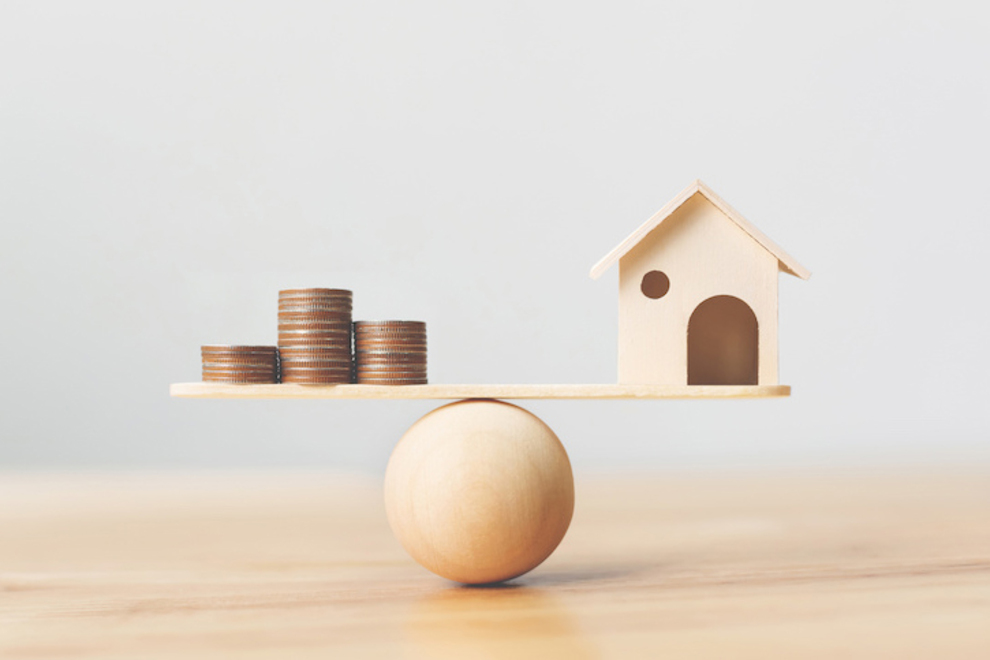
Taxes for the purchase of a property in Italy
Quick guide for foreign citizens who want to buy a house in Italy
When one proceeds with the important step of buying a prestigious property in Italy, there are numerous bureaucratic tasks that need to be dealt with and there are also various taxes and duties that must be paid.
Foreign citizens who want to buy a property in Italy, to move to live in the beautiful country or to use it as a holiday home, most often ask us how the taxation mechanism works for the purchase of a residential home in Italy.
The calculation is based on different parameters:
- the cadastral income of a property which is obtained from a cadastral survey;
- if the seller is a private individual, therefore a natural person or a company;
- if you buy it as a first home (tax relief);
- if you buy it as a second "holiday" home (ordinary taxation).
The calculation of taxes on the purchase of a house will be different if the seller is a company or a construction company and it will also be different depending on whether or not the sale is VAT exempt.
In this article we focus on a sale between private individuals, which turns out to be the main case for most of the properties marketed by our agency, Broker Immobiliare Exclusive Real Estate, a company specialized in the sale and purchase of luxury properties, based in Tuscany in Forte dei Marbles.
What is the cadastral income
The cadastral income, which is obtained from a cadastral survey, is the fiscal, not real, value of a house and is different for each individual property.
By greatly simplifying the fiscal and legal terms, the cadastral value is the tax base to which the various tax rates associated with the possession of a real estate property in Italy are applied.
Definition of first home (tax relief)
With the definition of first home we identify the first owned property purchased in Italy by a natural person and intended for residential use.
In order to take advantage of tax breaks for the first home, certain requirements must be met:
- the property subject to sale must be a residential and not a luxury home, therefore, the cadastral category must not be A1, A8 and A9;
- it must be located in the Municipality in which the purchaser already has his residence or in which he will establish his residence within 18 months from the date of the deed, or in the Municipality in which the purchaser works or studies or in which his employer;
- the purchaser must be a natural person and must declare in the deed that he is not the owner, either exclusive or by share or in a community regime, of property rights, use, usufruct, habitation or bare ownership, of other dwellings on the whole Italian national territory. Basically that he does not have real property rights on any other property in Italy and for which he has already enjoyed the first home purchase concessions.
Definition of second home (ordinary taxation)
A second home is a property in which the owner's residence is not located.
The determination of a second home is important for tax purposes, since second homes do not enjoy preferential treatment both in terms of purchase transactions and in terms of property maintenance taxes and duties.
So let's see together how the calculation of taxes for real estate sales between private individuals works
Taxes on the purchase of the first home
If you buy a first home from a private individual, you will have to pay the following amounts:
The proportional registration tax in the measure of 2% of the cadastral value (cadastral income multiplied by 115.5 which is the law coefficient). In the event that the amount is lower than 1,000 euros (minimum value of this tax), the tax will be raised to 1,000 euros;
Fixed mortgage tax and cadastral tax of 50+50 euros.
The taxes on the purchase of the second home
If you buy a second home from a private individual, you will have to pay the following amounts:
Registration tax equal to 9% of the cadastral value (cadastral income multiplied by 126 which is the law coefficient). In the event that the amount is less than 1,000 euros, the tax will be increased until the minimum value of 1,000 euros is reached;
Fixed mortgage tax and cadastral tax of 50+50 euros.
Now let's take a practical example to understand how taxes are calculated on the purchase of a property between private customers in Italy.
Let's consider the case of a property that costs 600,000 euros and with a cadastral income of 929.62 euros.
First home purchase
We start from the cadastral income, we multiply it by the coefficient 115.5, thus obtaining the revalued cadastral value (929.62*115.5) equal to 107,371.11 euros. On this cadastral value, we calculate the registration tax of 2% (107,371.11*2%=2,147.42) and add the cadastral and mortgage taxes for a total of 100 euros. The final result is 2,247.42 euros.
Second home purchase
We start from the cadastral income, we multiply it by the coefficient 126, thus obtaining the revalued cadastral value (929.62*126) equal to 117.132.12 euros. On this cadastral value, we calculate the registration tax of 9% (117,132.12 *9%=10,541.89) and add the cadastral and mortgage taxes for a total of 100 euros. The final result is 10,641.89 euros.
To these taxes will be added these additional costs to be paid by the buyer:
- notarial deed expenses
- expenses for agency mediation
Broker Immobiliare Exclusive Real Estate, a company specializing in the buying and selling of luxury properties, based in Forte dei Marmi in Tuscany, employs highly specialized personnel with extensive experience in the buying and selling of luxury properties, especially of significant value and complexity.
